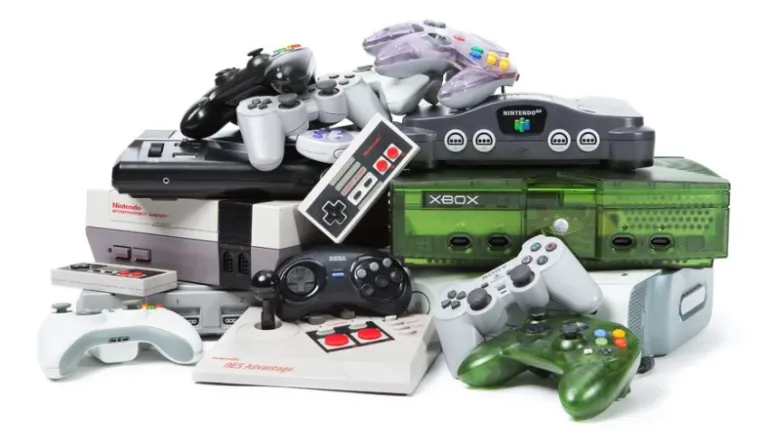
The video game console as we know it is on its way out. The writing is on the wall. With cloud gaming, cross-platform ecosystems, and powerful mobile hardware reshaping the gaming experience, the need for dedicated console boxes is fading fast. It's not just a prediction—it's a shift already happening right in front of us.
For decades, video game consoles were the heart of home entertainment. From the NES to the PlayStation 5, generations of players lined up for each new launch, eager for better graphics, exclusive titles, and smoother gameplay. Consoles delivered plug-and-play convenience with high performance at a consumer-friendly price.
But times have changed. The console model—hardware cycles every 5–7 years, physical media, exclusive game ecosystems—feels increasingly outdated in a world moving toward flexibility, portability, and digital convenience.
Cloud gaming has matured faster than many expected. Services like Xbox Cloud Gaming (formerly xCloud), NVIDIA GeForce NOW, and PlayStation Plus streaming are proving that gamers don’t need high-end local hardware to enjoy cutting-edge games. All the heavy lifting is done in the cloud. All the gamer needs is a screen and a decent internet connection.
This new model disrupts everything consoles were built on. No more hardware limitations. No more waiting for updates or installing massive files. No more choosing between platforms—cloud services bring AAA games to phones, tablets, smart TVs, and even web browsers.
Why buy a $500 console when you can stream the same game on your phone or TV instantly?
One of the biggest selling points of consoles used to be exclusive titles. Nintendo had Mario. Sony had God of War. Xbox had Halo. But even this advantage is disappearing.
Developers and publishers now realize that limiting games to a single device hurts their revenue. More games are launching across PlayStation, Xbox, PC, and even Switch at the same time. Cross-play lets friends play together, no matter which system they own.
Sony and Microsoft themselves are embracing this. Xbox Game Pass is available on PC and cloud. Sony is bringing more of its exclusives to PC. The walls are coming down, and that exclusive identity consoles once had is fading fast.
Modern smartphones and tablets are powerful enough to run console-quality games natively. With chips like Apple’s A17 Pro or Qualcomm’s Snapdragon 8 Gen 3, mobile games now rival console experiences. Games like Genshin Impact, Call of Duty Mobile, and Diablo Immortal have proven there's a massive market for AAA gaming on portable devices.
Add a Bluetooth controller and a Game Pass subscription, and your phone becomes your console. Why carry an extra box when your pocket can do it all?
For years, PCs were seen as complex and expensive compared to consoles. But with platforms like Steam, Epic Games Store, and Game Pass for PC, the experience is easier and cheaper than ever. Prebuilt gaming PCs, handheld gaming PCs like the Steam Deck, and all-in-one solutions like mini gaming desktops blur the line between console and computer.
More importantly, games bought on PC often come with higher frame rates, better graphics, mod support, and no platform lock-in. As more console gamers transition to PC or cloud-based services, the traditional console ecosystem shrinks even further.
Gaming hardware is expensive to design, manufacture, and support. Consoles are often sold at a loss initially, with profits made later through game sales and subscriptions. But in a digital-first world, publishers and developers can go direct-to-consumer, cutting out the middleman entirely.
Subscription services, cloud streaming, and digital storefronts allow companies to focus on software revenue without needing to build custom hardware. Microsoft has already hinted at a future where Game Pass and cloud streaming reach smart TVs without needing a console at all.
If the business model works better without physical hardware, the industry will follow.
Gamers today want choice. They want to play where they want, when they want, without being tied to a single piece of hardware. This shift mirrors trends in music and film—people don’t own CD players anymore because Spotify exists. They don’t buy DVD players because Netflix and YouTube are more convenient.
Gaming is following the same path. The future isn’t in the box under your TV—it’s in the cloud, in your phone, in your browser. The device is becoming irrelevant. What matters is access and experience.
That doesn’t mean PlayStation, Xbox, or Nintendo will disappear overnight. These brands will evolve. Hardware may continue in some form—hybrid devices, handhelds, or powerful streaming sticks. But the traditional “console generation” model is on its way out.
Microsoft is already building an ecosystem that doesn’t depend on Xbox consoles. Sony is investing heavily in cloud gaming. Nintendo may hold out the longest due to its unique audience, but even it will face the shift eventually.
The era of physical consoles will fade into nostalgia, just like cartridges, memory cards, and wired controllers.
Video game consoles served a purpose, and they ruled the gaming industry for decades. But the landscape has changed. Technology, consumer habits, and economic forces are pushing the industry toward a future where the console is no longer the center of the gaming universe.
The console isn’t dead because people hate them. It’s dying because there’s a better way to play. Faster. Cheaper. Smarter. More flexible. The future of gaming belongs to those who adapt, not those who cling to plastic boxes.












Comments
There are no comments for this Article.